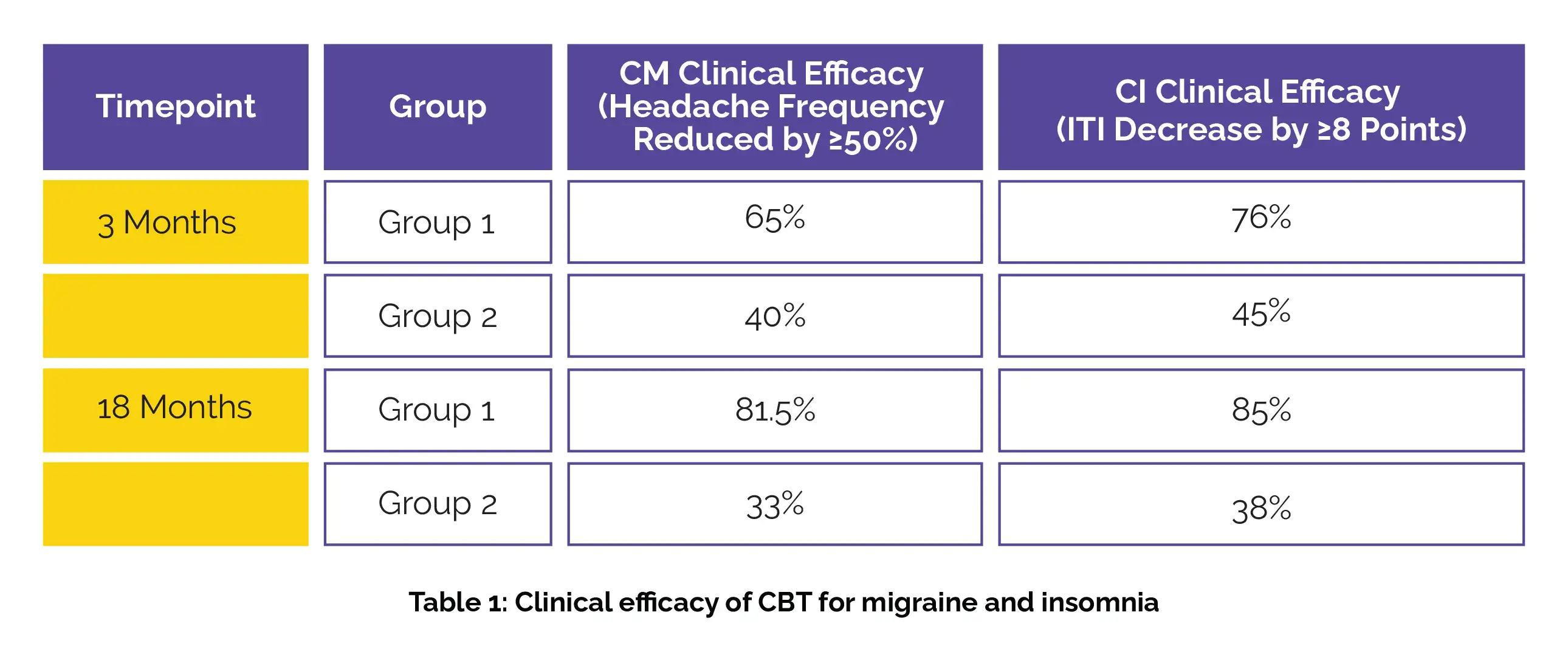Categories
Change Password!
Reset Password!


Cognitive behavioural therapy, a type of talk therapy offers a holistic, non-pharmacological solution that addresses both chronic migraine and insomnia simultaneously.
New research published in 'Zhurnal nevrologii i psikhiatrii imeni S.S. Korsakova' aimed to assess the efficiency of a multidisciplinary program, incorporating cognitive behavioural therapy (CBT), for patients with chronic migraine (CM) and concurrent chronic insomnia (CI).
A total of 96 patients with CM and CI (average age of 35.7±8.6 years) underwent clinical interviews and tests. The patients were randomly assigned to two groups: Group 1 received a CBT to treat pain and insomnia, along with standard migraine treatment; Group 2 received standard migraine treatment (preventive and acute pharmacotherapy, lifestyle and sleep hygiene recommendations). Assessment of clinical and psychological parameters was conducted prior to treatment initiation and at 3-, 6-, 12-, and 18-month follow-up.
At the 3-month follow-up, significant improvements were seen in Group 1: fewer headaches, lessened painkiller use, improved Insomnia Severity Index (ITI), State-Trait Anxiety Inventory (STAI), Beck Depression Inventory scores, and Migraine Disability Assessment (MIDAS) scores. These improvements were sustained at 6, 12, and 18 months. In Group 2 at 3 months, noteworthy improvements were noted in headache frequency, use of analgesics, ITI, and MIDAS scores; however, these gains were not maintained at later follow-ups.
The clinical efficacy for CM and CI at 3 and 18 months between Group 1 and Group 2, portrayed significantly better outcomes in Group 1 (Table 1):

Thus, CBT proved highly effective for individuals with both CM and coexisting CI.
Zhurnal nevrologii i psikhiatrii imeni S.S. Korsakova
Cognitive behavioral therapy in the treatment of patients with chronic migraine and concomitant chronic insomnia: a prospective, randomized trial
V A Golovacheva et al.
Comments (0)